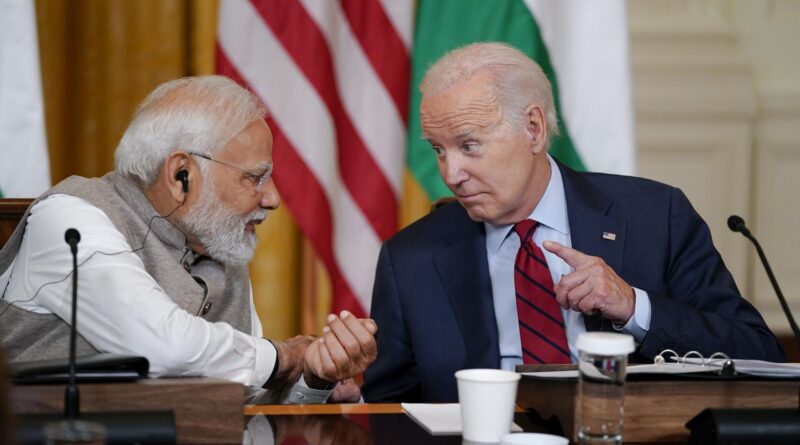US Trade Delegation Heads to India: A Breakthrough in the Offing?
A group of United States trade representatives is preparing to meet with their Indian counterparts for a day of dialogue in New Delhi. The purpose of this meeting is to attempt to find resolution to the stalemate surrounding the anticipated India-US Bilateral Trade Agreement (BTA). The Commerce Secretary expressed optimism stating that both nations are entering the talks with a positive mindset and are eager to define next steps based on the discussions’ outcomes.
The significance of this single-day visit by the US delegation cannot be understated given its potential implications for the future of the negotiations. These talks come against a backdrop where the US is persistently urging India to open its markets for key agricultural commodities like soybean and corn – a proposition India has shied away from due to a complex interplay of economic factors and political considerations.
Bilateral Trade Agreement (BTA) discussions had hit a roadblock in the past, causing increased friction between the two nations. The escalation saw the US implement burdensome tariffs of 25% on a majority of Indian products, further amplifying tensions with punitive tariffs of equivalent measure for India’s continued oil purchases from Russia.
The proposed visit of the US trade delegation was previously delayed. At the time, US officials attributed India’s purchase of Russian oil and the perceived support for Moscow’s military operations in Ukraine as the primary reasons. This was viewed with a degree of consternation by India, which emphasised its neutrality in the geopolitical conflict.
The forthcoming meeting, scheduled for Tuesday, will not be classified as a formal negotiation round within the framework of the trade agreements. Despite this, it’s considered a substantial step forward in resuming dialogues and exploring routes to establish an accord between the two global economic powerhouses.
The two countries have been engaged in ongoing virtual discussions over an extended period, yet progress has remained slow-paced. The ineffective progression has largely been tied to unfavorable environmental conditions which haven’t been conducive to substantial negotiations.
This upcoming in-person interaction may pave the path forward in determining if the Commerce & Industry Minister from India will travel to Washington, DC for subsequent dialogue rounds. The decision is expected to take shape following the outcome of this Tuesday’s diplomatic engagement.
Although the countries have been in touch virtually, the discussions were considered less productive due to prevailing circumstances. The progress made in these interactions wasn’t as significant as desired, placing the onus on this week’s physical meeting to rekindle the momentum.
Last week witnessed diplomatic efforts aimed at thawing the strained relations and initiating the restoration process. Expectations were set around the hope of a mutually successful conclusion for both nations in the forthcoming weeks.
The Tuesday discussions are seen as a clear departure from the circle of virtual talks that were marked by slow progress and lack of substantial headway. The importance of face-to-face interaction is being underscored with hopes of it being a catalyst to move the talks in a more positive and fruitful direction.
This renewed engagement serves as an opportunity for both countries to explore common ground and bridge the gap on contentious issues. The dialogue is crucial, not only for the trade agreement but also for fostering bilateral ties and cementing economic cooperation between the two nations.
So far, the road to an agreement has been strewn with numerous dilemmas that caused the talks to derail in the past. This new opportunity presents a chance for both sides to put aside differences and work towards a resolution benefiting mutual trade interests.
These impending trade talks, set within a volatile geopolitical framework, highlight the increased interdependence of nations today. As the world watches, it’s hoped that these discussions between two significant economies can set a precedent for future trade negotiations globally, amidst increasingly complex political intricacies.

